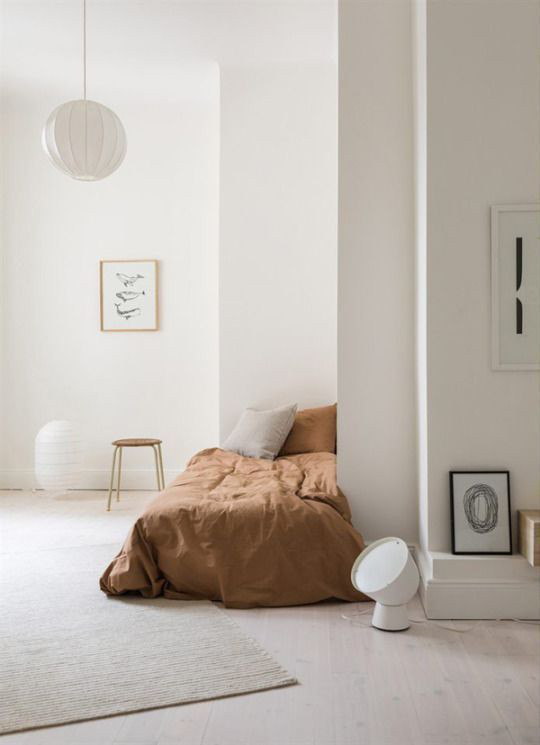Checking Out the Long-Term Impact of Minimalism on Mental and Emotional Well-being
Wiki Article
The Art of Minimalism: Just How Accepting Less Can Bring About a More Satisfying and Purpose-Driven Way Of Life
The art of minimalism provides a compelling standard shift, motivating people to prioritize top quality over quantity in both belongings and experiences. As we consider the effects of this way of living, one must contemplate: exactly how can the act of letting go transform our relationships and individual desires?Recognizing Minimalism
Minimalism, commonly defined as a lifestyle choice, stresses the significance of intentionally curating one's ownerships and experiences. At its core, minimalism supporters for a purposeful method to living, urging people to focus on what really matters while eliminating disturbances and unwanted. This approach discovers its roots in different social and imaginative motions, evolving right into a thorough way of life that transcends plain appearances.
Moreover, minimalism offers as a reaction to the consumer-driven culture that commonly equates joy with material buildup - Minimalism. By advocating for simpleness and intentionality, minimalism obstacles social norms and advertises mindfulness in intake. This way, it cultivates a deeper link to oneself and the setting, leading the way for a life rooted in credibility and fulfillment
Advantages of a Minimalist Way Of Living
Accepting a minimal lifestyle provides various advantages that extend beyond plain decluttering. At its core, minimalism cultivates an extensive sense of clearness and focus. By eliminating diversions and excess, individuals can reroute their energy toward what truly matters, boosting both professional and individual pursuits. This intentionality often results in improved psychological wellness, as individuals experience decreased stress and anxiety connected with frustrating settings.Furthermore, minimalism motivates monetary freedom. With fewer possessions to keep and acquire, people can allocate sources towards experiences and investments that promote personal development and fulfillment. This change in perspective can cause a more lasting way of living, as minimalism commonly aligns with eco-conscious selections, decreasing one's carbon impact.
Additionally, the technique of minimalism cultivates more powerful connections - Minimalism. By focusing on significant communications over material belongings, people can promote deeper links with family members and buddies, enriching their social lives
Practical Steps to Declutter
Decluttering is an important step toward accomplishing a minimalist way of life and needs a systematic technique. Begin by setting clear objectives for the decluttering process. Determine which areas of your lifeâEUR" be it your home, work space, or digital spaceâEUR" need focus first.Next, employ the "one in, one out" policy to maintain equilibrium as you declutter. For each brand-new thing that enters your life, think about removing an existing one. This concept aids in avoiding future mess build-up.
Embrace the four-box technique: label boxes as "maintain," "contribute," "sell," and "garbage." As you arrange through each product, location it in the proper box. This technique not only improves decision-making but additionally gives a graph of your progress.
Devote and establish a timer to short, focused decluttering sessions. By integrating these functional actions right more into your lifestyle, you can create an organized setting that cultivates clearness and function, strengthening the core worths of minimalism.
Cultivating Mindfulness Through Minimalism

When we embrace a minimalist way of life, we come to be more careful about our dedications, ownerships, and relationships. This selectivity grows mindfulness, as we learn to focus on quality over amount. Each thing we select to keep brings or offers a purpose happiness, reinforcing our link to today. As we practice letting go of non-essential distractions, we can reroute our emphasis towards purposeful experiences, enhancing our psychological wellness.
Moreover, minimalism invites us to reduce and reflect. The Learn More process of decluttering becomes a mindfulness exercise, prompting us to examine our purposes and worths. In this way, minimalism is not just about lowering material goods; it is a path to much deeper self-awareness and a much more meeting, purpose-driven presence.
Building Meaningful Connections

When we embrace minimalism, we may discover ourselves more present in our communications. Reduced disturbances allow us to involve totally with others, cultivating genuine interaction and empathy. This willful method results in stronger bonds, as we invest top quality time and emotional power right into the connections that line up with our worths.
Additionally, minimalism encourages us to let go of poisonous links that drain our energy and diminish our well-being. By knowingly curating our social circles, we can grow an environment abundant in positivity and common development. Inevitably, constructing significant connections through a minimalist lens allows us to lead an extra purpose-driven life, where partnerships are not simply many, however exceptionally impactful. This paradigm shift encourages us to cherish and support the links that absolutely enhance our presence.
Verdict
Finally, embracing minimalism fosters a way of living characterized by intentionality and clearness. By minimizing interruptions and simplifying commitments, people can grow a deeper feeling of self-awareness and improve their relationships. The concepts of minimalism not only advertise mental well-being yet additionally urge an emphasis on what is genuinely considerable. Ultimately, the technique of minimalism functions as a powerful device for attaining a satisfying and purpose-driven presence, aligning day-to-day activities with core worths and ambitions.Minimalism, usually defined as a way of living choice, highlights the relevance of deliberately curating one's experiences and properties. Minimalism motivates people to examine their routines, dedications, and relationships, ultimately leading to a much more significant existence. By integrating these functional steps right into your way of living, you can develop an organized environment that fosters clarity and purpose, reinforcing the core values link of minimalism.
Minimalism encourages us to evaluate our social dedications, permitting us to focus on partnerships that bring pleasure and assistance instead than commitment or superficiality.
In verdict, accepting minimalism promotes a way of life defined by intentionality and clearness.
Report this wiki page